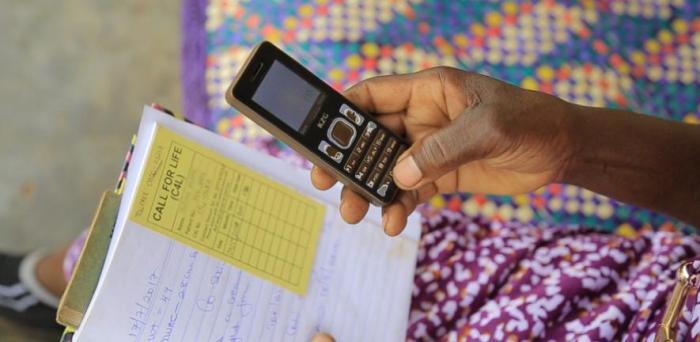People entering Uganda have been required to quarantine for 14 days as part of the country’s lockdown measures, during which time they are monitored by the Ugandan Ministry of Health for development of COVID-19 symptoms.
Cambridge researcher Dr Rosalind Parkes-Ratanshi and her team have been helping the Ministry monitor and support quarantined individuals using a voice and SMS messaging system, Call for Life Uganda (C4LU). The tool was rapidly adapted for COVID-19 by Parkes-Ratanshi, who is based jointly at Cambridge’s Institute of Public Health and leads the Academy for Health Innovation at Infectious Diseases Institute, Makerere University, Uganda.
The C4LU system regularly phones quarantined individuals to request they report any symptoms. The automated system then generates symptom reports and anything of potential concern is flagged to healthcare professionals for triaging. This eases the burden on healthcare workers of widespread check-ups in person or by phone.
Parkes-Ratanshi and colleagues at the Infectious Diseases Institute have been using the tool for the past four years to monitor HIV patients, in collaboration with Janssen: Pharmaceutical companies of Johnson & Johnson. When the coronavirus pandemic reached Uganda, the team rapidly repurposed the system they had developed, re-scripting for COVID-19 and recording the messages in 11 of the languages spoken in Uganda.
“The total number of COVID-19 cases in Uganda has been low so far, with just over 1,000 cases across the whole country,” says Parkes-Ratanshi, who is currently based in Uganda. “Almost all cases seem to be linked to returning travellers and so the quarantine system and lockdown have been vital to slow the spread of the pandemic.”
Currently, the team are monitoring around 250 people using C4LU, with a total of 599 having participated so far. “Only a very small number of people have then needed to be tested for COVID-19, which shows the benefits of having a tool that can take pressure off the health system by reducing unnecessary visits,” she says.
Image: Call For Life
Credit: Infectious Diseases Institute
Reproduced courtesy of the University of Cambridge
